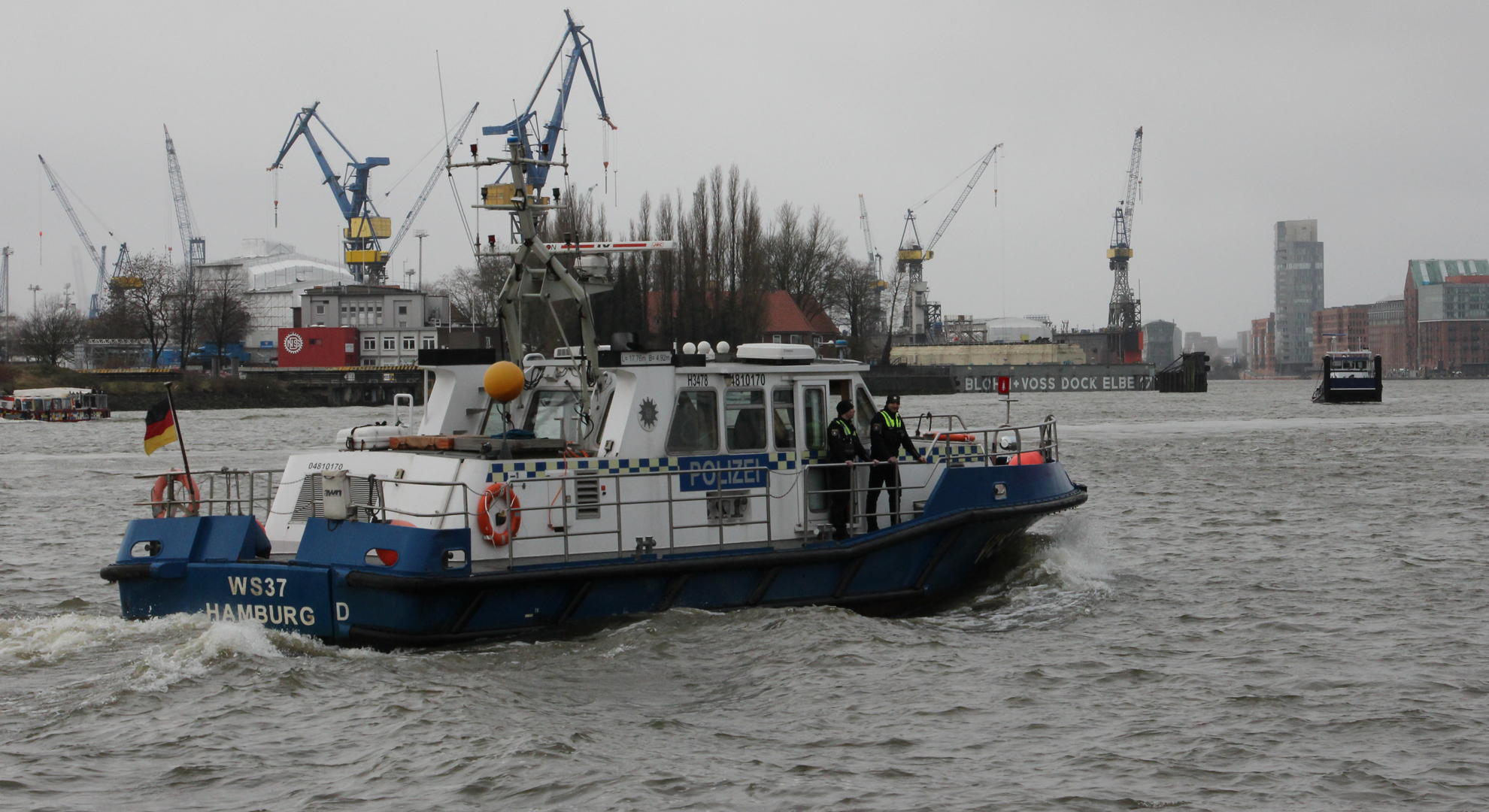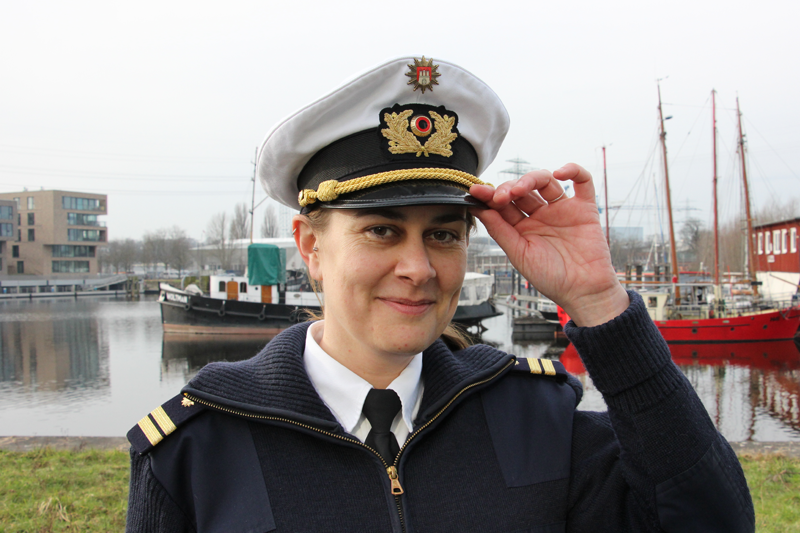From concept to reality
The industrial engineer Isabel Ziebart is involved in project management for the “Alte Süderelbe Western Bypass” of the Hamburg Port Railway. Her task is to ...

As early as during primary school, Susanne Marth had decided for a brief time that she wanted to work in the police after passing her bicycle test under the supervision of a police officer. “But I soon scrapped the idea,” recalls the chief police commissioner from the specialised staff unit of the Waterways Police in Hamburg. As a young girl, she did not suspect that she would one day end up in the police after all – albeit following a career detour. After graduating high school, she was soon convinced that she wanted to become a ship mechanic. Her training was followed by a nautical study programme and she attained her major nautical and minor technical certificate of competency. “I then worked at sea as a nautical officer of the watch for five years,” she explains.
Meanwhile, the 37-year-old has already been working for the Waterways Police for six and a half years. “For many, joining the police is a childhood dream, while others – like myself – only decide in their mid to late twenties.” This is not a problem, so long as the requirements are met. But why did Marth give up seafaring?

“It was an exciting time, but the periods of duty were long. I would spend four months at sea and then two months at home,” she notes. At some point, she realised that she lost touch with the everyday lives of family and friends: “I had the feeling that I was only ever visiting on land.”
After she had spent more than ten years at sea, she found it increasingly difficult to have to go back on board, and she searched for career alternatives. It had to be a profession she could do locally, but still had a maritime connection. After all, her passion for seafaring, shipping and the maritime world had by no means disappeared. “I was also used to being physically active and outside a lot, dealing with lots of people from different places and backgrounds,” she says, describing her previous work. The equivalent on land could be the Waterways Police, she finally thought, as that profession doesn’t just involve deskwork, even if Marth currently has office duty.
“The work takes place at the port where my seafaring began,” she adds. She still deals with maritime topics. What’s more, the Waterways Police play a key role in marine conservation. That was ultimately what fully convinced her to switch sides so-to-speak – from the ship to the supervisory authority. For her, it is important that the rules for protecting the sea are actually observed.
In 2017, Marth started the three-year study programme at the police – in career section II, or higher civil service. “After that, I initially spent 16 months in training and in the field – as part of the programme – where I learned the skills for the job and was trained for the Waterways Police.” This was followed by eleven months on duty in the Waterways Police Commission (“WSPK 3”). There she was part of the maritime unit and was involved in all police callouts on both water and on the land. This included documenting traffic accidents at the port as well as checking incoming cargo and cruise ships or monitoring the transport of hazardous goods.
“I then got the offer to switch to the specialised staff unit in the general policy department,” she explains, where she is now responsible for the area of marine conservation and speaks whenever the Waterways Police need to issue a statement on certain topics. She provides information for answering written queries from policymakers, acts as a contact for her colleagues who perform environmental inspections, and helps to clarify fundamental questions on what can be a rather unclear legal situation, which she communicates across different authorities. The specialised staff unit works closely with the environmental agency, the Hamburg Port Authority, the Federal Maritime and Hydrographic Agency and, in matters of safety, with BG Verkehr. “I also inform colleagues in the field about legal changes and new regulations.” Marth is also involved in the women’s network of the Waterways Police in order to support the 100 other female colleagues that meanwhile work for the authority. She is happy as she has switched from one dream job to the next.
Requirements: Candidates should be between 16 and 34 years of age, at least 1.6 metres tall and neither overweight nor underweight. They may not have any tattoos that remain visible when wearing the uniform and must have attained a German bronze swimming certificate and a driving licence (category B). Those who do not yet have a driving licence must obtain it within the first year of their training/studies.
Softskills: Those who join the police service should be empathic, communicative, mentally and physically resilient and be able to work effectively in a team.